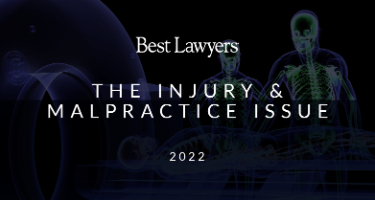After your accident, you may feel relief when you are awarded a compensatory settlement. It will go a long way toward helping cover the bills that have piled up and your missed work. But what if you receive a notice that multiple liens have been placed on your settlement?
Bill collectors are demanding a huge chunk of the money you’ve received, and you are legally obligated to pay your creditors. You may feel you’ll be left with barely enough money to survive. Or maybe you still can’t work, and you haven’t truly begun to heal from the pain and suffering you’ve endured, and now you have this lien business hanging over your head.
You wonder if there’s any recourse to stop these companies from bleeding you dry. How can you protect your settlement from heavy liens? Can an Indiana personal injury lawyer help reduce the amount of liens placed on your compensation?
The short answer is yes. An expert personal injury attorney can assist you and prevent the liens from placing you under undue financial burden. However, it’s important to understand both how liens arise, and the laws on the books pertaining to settlement liens.
What are settlement liens?
After your claim has begun its legal journey, organizations you may owe money to can ask a judge to set aside part of your settlement. If a judge awards these liens, it’s because you legitimately owe debt.
Legally, a judge may be required to allow these liens on your debt. However, a personal injury lawyer can help in negotiations with debt collectors seeking gain from your settlement in the form of lien claims.
Typically, liens come from bills that have accumulated as a result of your accident. Health insurance companies, hospitals, and auto insurance providers may seek repayment through your settlement. If you don’t have health insurance at the time of your accident or the liable insurer in your accident won’t cover the entirety of your medical bills, you may find yourself responsible for staggering payments.
You may not be able to afford to pay out of pocket, yet health care providers may still file a claim to recoup the money spent on your care.
Lien claims are filed based on the settlement companies predict you’ll receive. In many states, the claim can come at the beginning of your search for compensation, but it may also come after you’ve received your settlement. Insurance companies may chomp at the bit to make sure you’re still on the hook for outstanding bills. Creditors seeking liens file a lawsuit claiming rights to part (or all) of your settlement, and the judge can approve or reject these claims.
Federal statute of time limitations on liens
The first debt collectors paid in any lien claims are federal government agencies. If you used Medicare, Medicaid, or Veterans Benefits to pay for your post-accident healthcare, the federal government can file for a lien judgment up to six years after you’ve received your settlement. However, state laws on Medicare and Medicaid liens vary drastically.
Federally, the statute of limitations for private companies seeking liens on your personal injury settlement is also six years. State laws may extend or decrease the allotted time to file a lien against a settlement.
Lien Act in Indiana
In Indiana, regulations are in place for non-government entities seeking liens against personal injury compensatory settlements. These statutes help protect injured parties from seeing the entirety of their settlement go to hospitals and other healthcare providers. The Indiana Hospital Lien Statute includes the following lien protections:
A hospital cannot file a lien on your personal injury claim before your claim is settled.
Those actively on Medicaid or Medicare cannot have a lien placed against them (this varies from state to state).
If a personal injury settlement is received from an insurance provider who failed to cover all medical bills, a medical provider cannot file a lien against the settlement. Instead, they must recoup outstanding bills from the negligent insurance provider.
If a pre-settlement agreement is reached for partial payment of bills, a medical provider cannot file a lien against a settlement for full payment.
In Indiana, a hospital only has 90 days post-patient discharge to file a lien.
A hospital will receive a daily fine if a fully paid lien isn’t released within 15 days of payment.
A hospital lien on a compensatory claim cannot be for more than the hospital would charge an insurance provider for the same care. A patient who receives a personal injury settlement cannot be financially penalized for more than an insurer would owe.
A patient who has a lien placed on their injury settlement must be able to receive at least 20% of their settlement.
In Indiana, a patient covered by federal or state worker’s compensation cannot be subject to a medical lien on their settlement.
If you’re covered by insurance, a hospital must bill your insurance provider before filing a lien against your settlement.
How to avoid liens on your personal injury settlement
You should try to negotiate and agree to a partial payment plan with your medical care providers before you receive compensation. Such an agreement cannot be nullified by a settlement.
Hospitals and medical centers cannot place a lien for a larger amount than the agreement requires you to pay.
If you retain a personal injury lawyer, they can also assist in reducing lien payments.
How a lawyer can help reduce overwhelming liens
The process of lien reduction negotiation can feel insurmountable, especially since you’ll often be up against large corporate bureaucracies who have more time and energy to invest in the process than you will. A seasoned personal injury lawyer can offer you necessary, expert negotiation skills.
Your personal injury lawyer can contact all creditors (including medical care providers and auto insurance companies) that may seek a lien and negotiate payment before a lien is even filed. By beginning the negotiation process before you receive your settlement, a lawyer can help you avoid astronomical liens.
If a lien is filed, a personal injury lawyer can increase the amount of your proposed settlement. An increased settlement will allow you to absorb the lien and still receive the compensation you deserve.
It’s difficult for an individual without representation to negotiate partial lien payments. However, a seasoned attorney has dealt with a plethora of healthcare providers and insurance companies and can discern the best approach to negotiations. Your lawyer may draft up and affirm the legal merit of partial lien payment agreements. Similarly, an attorney may peruse your hospital bills and dispute any vague or exploitative charges before a lien claim is filed against you.
At Yosha Law, we are passionate about our clients and consider them part of our family. We can help get any liens on your settlement reduced and we will fight for what you’re rightfully owed.
We also offer an initial free case evaluation where we can help you explore the merits of your case and guide you through the legal process.




















